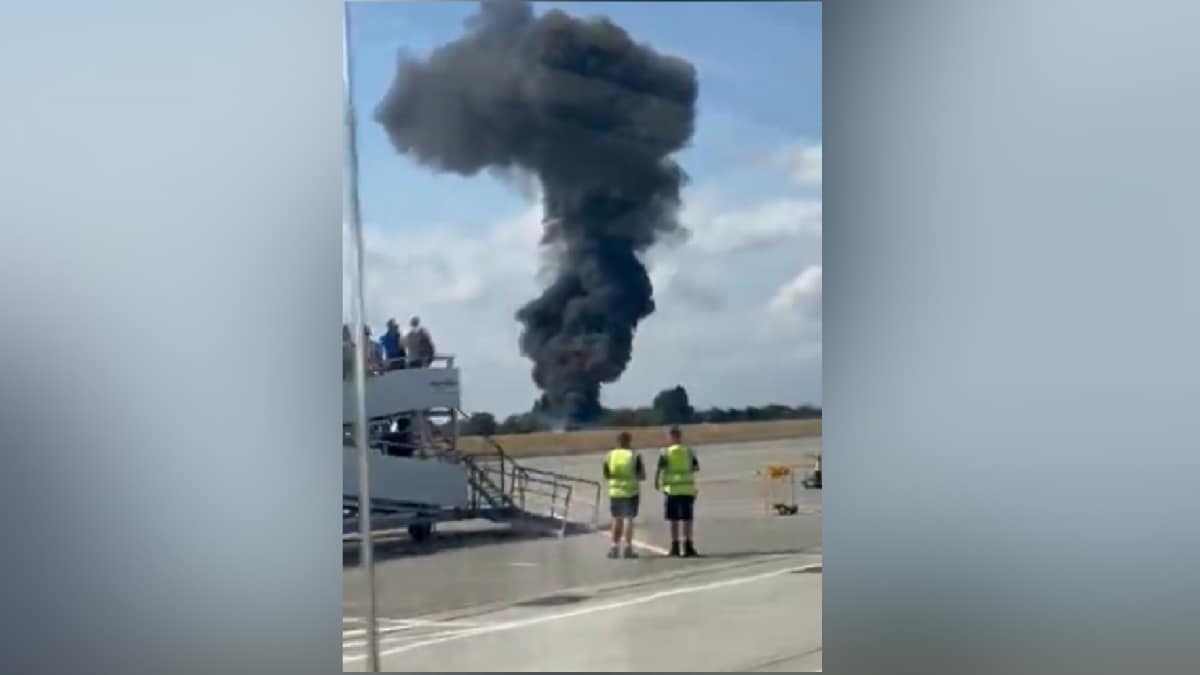Last Updated:June 20, 2025, 13:24 IST
India is planning to link the waters of Indus and Chenab with the Beas and build a 160-km long tunnel to take the water to the heartland till Gangasagar, adding to Pakistan's woes

Being a lower riparian state, Pakistan is heavily dependent on India-controlled rivers—particularly the Jhelum and Chenab flowing through Jammu & Kashmir. (PTI/Representative image)
River flows have now dropped significantly in all three major regions of Pakistan, in a direct fallout of India controlling the flow after putting the Indus Waters Treaty (IWT) in abeyance on April 23.
Pakistan now desperately awaits the monsoon for some relief. As per Pakistan’s official data reviewed by CNN-News18, the cusecs flow of water as on June 20 in Pakistan is almost 20 per cent down compared to same date last year.
In the Punjab region of Pakistan, the water flow on June 20 stands at 1,10,500 cusecs, down 20 per cent from 1,30,800 cusecs on June 20 last year.
Not just Punjab, water flow is down in the key region of Sindh now. The water flow in Sindh is at 1,33,000 cusecs, down from 1,70,000 cusecs on the same date last year. In Khyber Pakhtunkhwa region, the water flow is down to 2,600 cusecs on June 20 from 2,900 cusecs on the same day last year.
The situation in Pakistan is clearly grave, especially for the late Kharif season from June till September.
Pakistan had anticipated a 21% water shortage due to India’s steps in the Kharif season — the shortage has now almost reached that level, the latest data shows.
India is planning to link the waters of Indus and Chenab with the Beas and build a 160-km long tunnel to take the water to the heartland till Gangasagar. This could make the situation even more difficult for Pakistan in the days to come.
PAKISTAN’S REQUESTS
In a statement last month, Pakistan said a “crisis had been created by Indian short supplies in Chenab River", and this would lead to shortages in the Kharif season.
Pakistan has so far sent four letters expressing concerns over the suspension of the Indus Waters Treaty and urging India to reconsider the decision. India has made it clear that the treaty would remain in abeyance and that “water and blood cannot flow together".
Prime Minister Narendra Modi said on May 27 that the people of India had a right to water. “Should they get their rightful share of water or not? And I haven’t done much yet. Right now, we have said that we have kept it (Indus Waters Treaty) in abeyance. They are terrified there, and we have started cleaning by opening the dam a little bit; we are removing the rubbish that was there," the PM had said in Gujarat.
WHY THE TREATY WAS PUT IN ABEYANCE
India and Pakistan signed the Indus Waters Treaty in 1960, with the World Bank as an additional signatory. The pact sought to divide the water of the Indus river and its tributaries equitably between the two countries. Under the treaty, water from three eastern rivers—Beas, Ravi, and Sutlej—was allocated to India, and that from the three western rivers—Chenab, Indus, and Jhelum—to Pakistan. The treaty also permitted both nations to use the other’s rivers for certain purposes, such as small hydroelectric projects that require little or no water storage.
“I want to tell the new generation how the country has been ruined. The Indus Waters Treaty was signed in 1960. If you go into its details, you will be shocked. It has even been decided that the cleaning work of the dams built on other rivers of Jammu and Kashmir will not be done. Desilting will not be done. The gates downstream for cleaning will not be opened. These gates were not opened for 60 years, and the water that should have been filled with 100% water gradually reduced to 2-3%," the PM had said.

Aman Sharma, Executive Editor - Affairs at CNN-News18, and Bureau Chief at News18 in Delhi, has over two decades of experience in covering the wide spectrum of politics and the Prime Minister’s Office....Read More
Aman Sharma, Executive Editor - Affairs at CNN-News18, and Bureau Chief at News18 in Delhi, has over two decades of experience in covering the wide spectrum of politics and the Prime Minister’s Office....
Read More
News india Pakistan’s 3 Regions See 20% Drop In River Flow As India Stops Water After IWT Suspension: Exclusive

 3 weeks ago
3 weeks ago


















